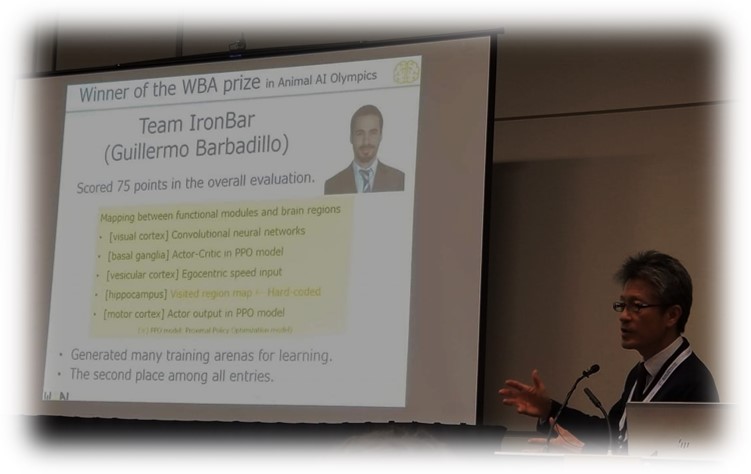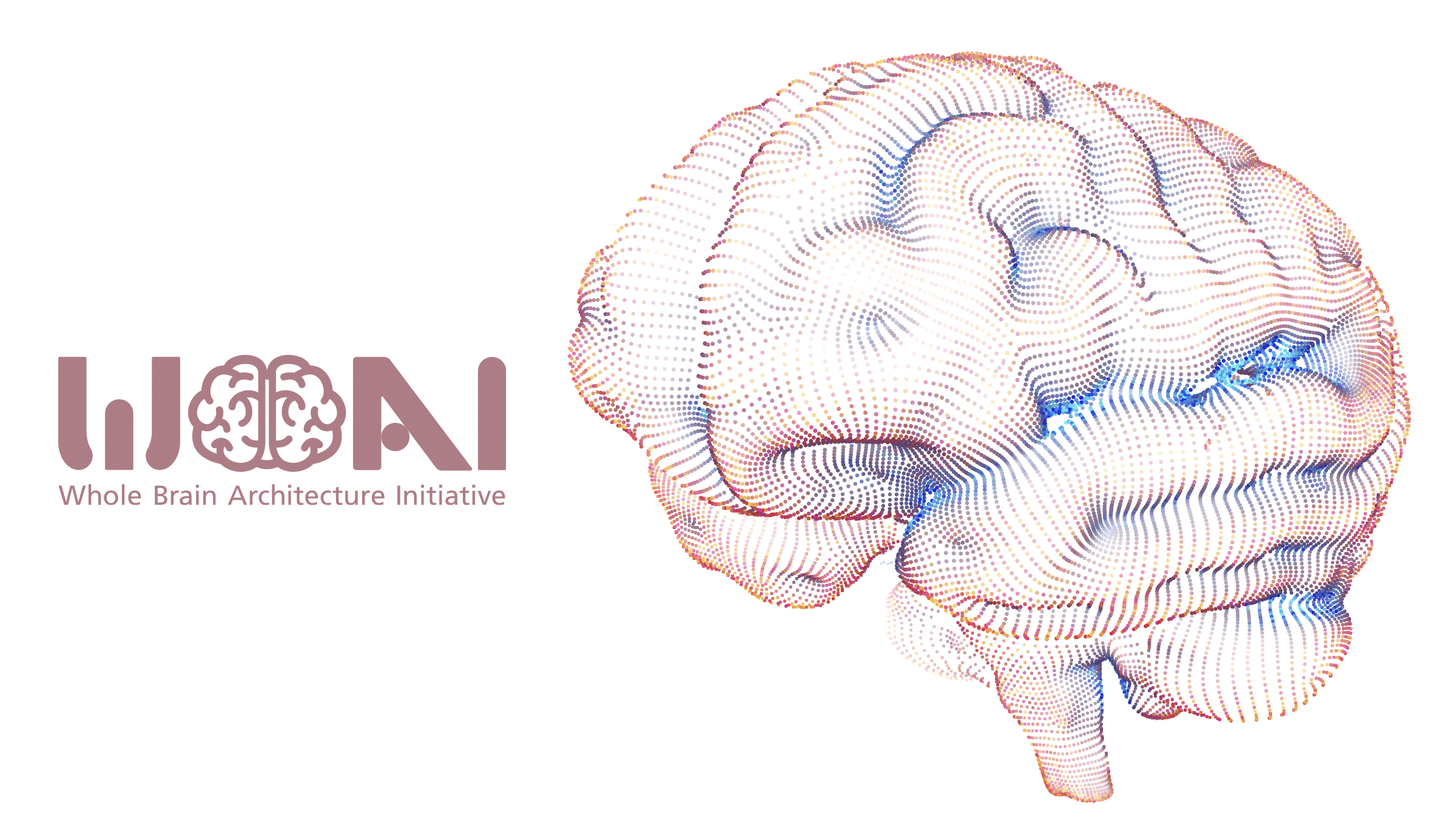Today’s artificial intelligence is not as versatile as animals to survive in the natural environment. Thus, the realization of animal-like intelligence in engineering will help the development of artificial general intelligence.
WBAI has been promoting democratic development of beneficial and brain-inspired AGI since 2015. In 2019, we sponsored “Animal-AI Olympics” (backed by the Leverhulme Centre for the Future of Intelligence (CFI)), the contest to reproduce the versatile intelligence of animals.
In particular, we carried out the following:
- To promote events in Japan, we held two meetups (first, second) jointly with Cougar Inc., an AI venture developing a virtual humanoid AI assistant.
- With our focus on brain-inspired AGI, we set up the WBA Prize to honor a biologically plausible application.
Five teams applied for the WBA Prize and after the evaluation, the award was announced on the Competition Track Day 2 of NeurIPS on December 14, 2019. The winner was Team IronBar (Guillermo Barbadillo), who scored 75 points in the overall rating of the GPS criteria that evaluates functional generality, biological plausibility, and computational simplicity.
This work uses the reinforcement learning model (Proximal Policy Optimization (PPO)) provided by the organizer as a sample code. The mapping between functional modules and brain regions is as follows.
| Visual cortex | Convolutional Neural Network |
| Basal ganglia | Actor-Critic in PPO |
| Vestibular cortex | Egocentric speed input |
| Hippocampal formation | Visited region map |
| Motor cortex | Actor output in PPO |
In this work, a simple spatial memory (the visited region map) was hard-coded, and a large number of training arenas were generated to perform sufficient learning. It also achieved second place performance among all entries. While the applicant described the spatial memory as a grid cell map in the entorhinal cortex, its implementation was rather close to the hippocampal place cell map.
The average score of the WBA Prize was 63 out of 100 points. The second place was Team BLAI (Takashi Sano) with 65 points, and the third place was Team Sirius (Dan Barry) with 62 points (who was at the 3rd place in the overall Olympics).

The announcement can be viewed from SlideLive (Slide 1136/1764).
Looking over the applications, it seemed to be effective to make a large amount of learning after adding spatial memory to reinforcement learning. This suggests the effectiveness of the architecture realized in the brain for basic tasks such as the spatial search.
Meanwhile, some hand-coded works attempted hierarchical learning, including meta-cognition and object persistence. These attempts are steps in the direction for higher level intelligence.
For WBAI, it was an opportunity to reaffirm the difficulty of assessing the biological plausibility to promote AGI development, questioning what should be valued in mimicking the brain. We hope to establish a more sophisticated process for evaluating the biological plausibility for intelligent systems.
Below, the review process of the WBA Prize is explained.
- WBA Prize applicants needed to submit an additional document to appeal the biological plausibility of their work.
- The code review confirmed no discrepancies between the document and the source code.
- The jury for the WBA Awards, made up of the following members, judged based on the GPS criteria. Functional generality was evaluated with scores for the 10 categories or the Animal-AI Olympics. The submitted documents have been assessed for biological plausibility. Simplicity was evaluated by the source code.
- Peter Dyan
- Kenji Doya
- Sachiyo Arai
- Hiroshi Yamakawa
The results of the overall Animal-AI Olympics in 2019 can be seen at the Animal-AI Olympics 2019. Team Trrrrr (Denys Makoviichuk) won the overall prize, with Team IronBar (Guillermo Barbadillo), who won the WBA Prize, in second place and Team Sirius (Dan Barry) in third place. The full presentation, including the description of the event by the organizers of Animal-AI Olympics, can be found on SlideLive (Slide 822/1764). The winner’s work solving the problem on the Animal-AI Testbed can be seen with your Web browser.



 Japanese
Japanese